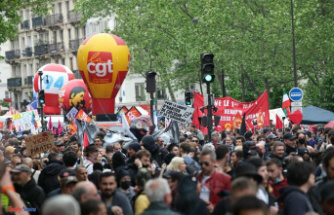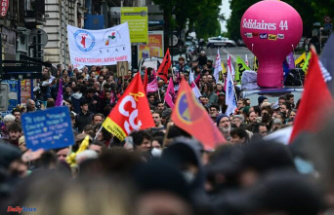War wounds have plagued relations between Japan and South Korea for too many decades. The two great democracies of East Asia have not been able to advance together on all the fronts that unite them - the North Korean threat, the Chinese assertiveness or the alliance with the United States - because the conflicts of the past have never been closed. A heavy backpack they have been carrying since the time when the Imperial Japanese Army expanded its domains across its neighbors in the region, forcibly recruiting thousands of people for forced labor or tricking young girls into sex slaves.
Under the Japanese occupation of the Korean peninsula, between 1910 and 1945, many women were forced into prostitution in the brothels in Tokyo and the occupied territories that served soldiers during World War II. In Japanese, they were called "ianfu," which euphemistically translates to "comfort women." Already in times of peace, the survivors and their families launched into an eternal race to demand compensation from Japan for the atrocities committed.
Seeking to close all the wounds, this Monday from Seoul they have executed a strange movement announcing that they will open a kind of fund to raise money and compensate all those South Korean families who won lawsuits against the Japanese companies that enslaved them, either in brothels or in the factories.
The proposed plan is for South Korea to compensate victims through a public foundation funded by private sector companies. "The victims will be compensated through a local foundation, financed with civil donations. With this, South Korea and Japan enter a new window of opportunity to overcome their past conflicts and build future-oriented relationships," he said at a conference Park Jin, Foreign Minister of South Korea.
This move, personally led by South Korean President Yoon Suk Yeo, is one more step of many the leader is taking to repair any cracked relationship with Tokyo at a crucial time in the Asia-Pacific region, with North Korea making more tests than ever with ballistic missiles and with the militarily reinforced tripartite of democracies that both countries are forming with their ally Washington.
President Joe Biden himself sent a statement welcoming the Seoul announcement because it marks "a groundbreaking new chapter of cooperation and partnership between two of America's closest allies." For Biden, the step taken will help the alliance formed by the three countries to "defend and advance the shared vision of a free and open Indo-Pacific."
US Secretary of State Antony Blinken also spoke on Twitter. "South Korea and Japan are two of America's most important allies," Blinken wrote. The US ambassador to the Japanese capital, Rahm Emanuel, noted Monday that officials from the three countries had met "more than 40 times" in the past 12 months, breaking the past diplomatic ice between Tokyo and Seoul. Even after Pyongyang's record streak of missile launches late last year, the three nations' navies conducted joint military exercises.
The compensation proposal has also been welcomed by Tokyo. "Let's hope this is an opportunity that will lead to strengthening bilateral relations in the future," Japanese President Fumio Kishida said. "South Korea's decision will help restore a healthy relationship," Yoshimasa Hayashi, Japan's foreign minister, also added.
Those who have not been amused by the news of the day in Seoul have been the victims and the parliamentary opposition, which has accused the Yoon government of capitulating to Japan. They claim that it should be the companies of the neighboring country, and not a collection of money by their own Government, that directly provide them with the compensation they demand.
"It is a complete victory for Japan, which has said that it will not pay a single yen on the forced labor issue," Lim Jae-sung, a lawyer for several victims, wrote on his Facebook page. A dozen of them, only five of whom are now alive, filed their lawsuit in 2013 and demanded compensation of 100 million won (about 70,000 euros) each for their suffering. In 2021, a Seoul court agreed with them and handed down a historic ruling against the Japanese government, which never complied with the ruling.
Three years earlier, for forced labor in industries during the war, the South Korean Supreme Court ordered two Japanese companies to compensate former workers or their bereaved family members. But Tokyo's response was to stretch out a diplomatic conflict by restricting some exports to Seoul and ensuring that all this compensation issue was settled with the 1965 treaty, when the two countries resumed relations.
According to the criteria of The Trust Project












